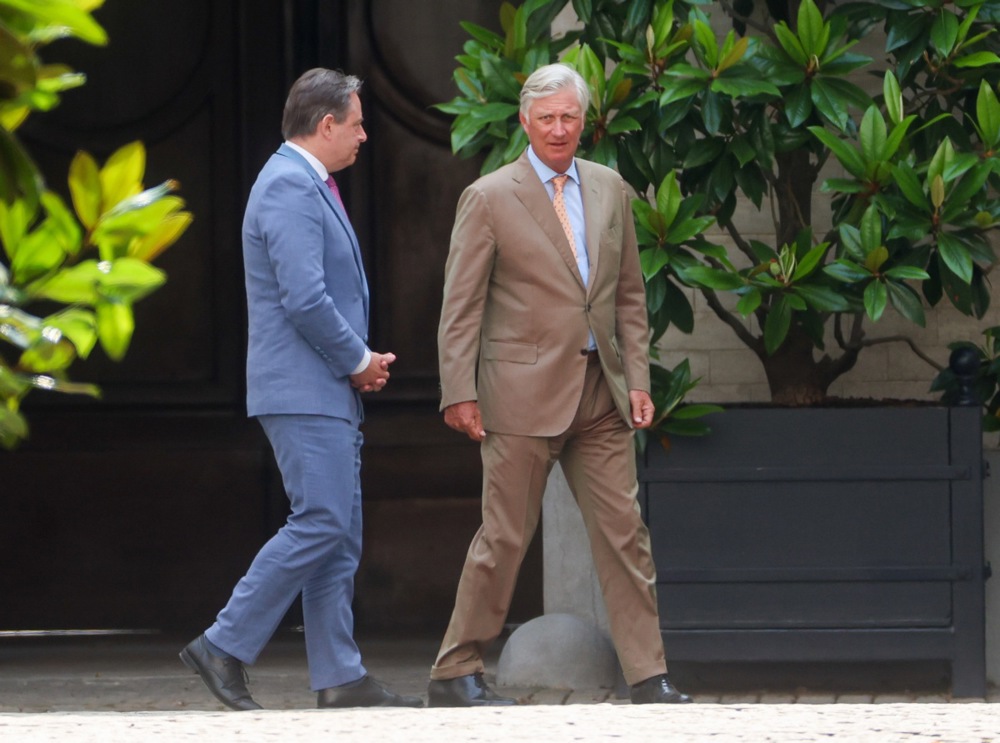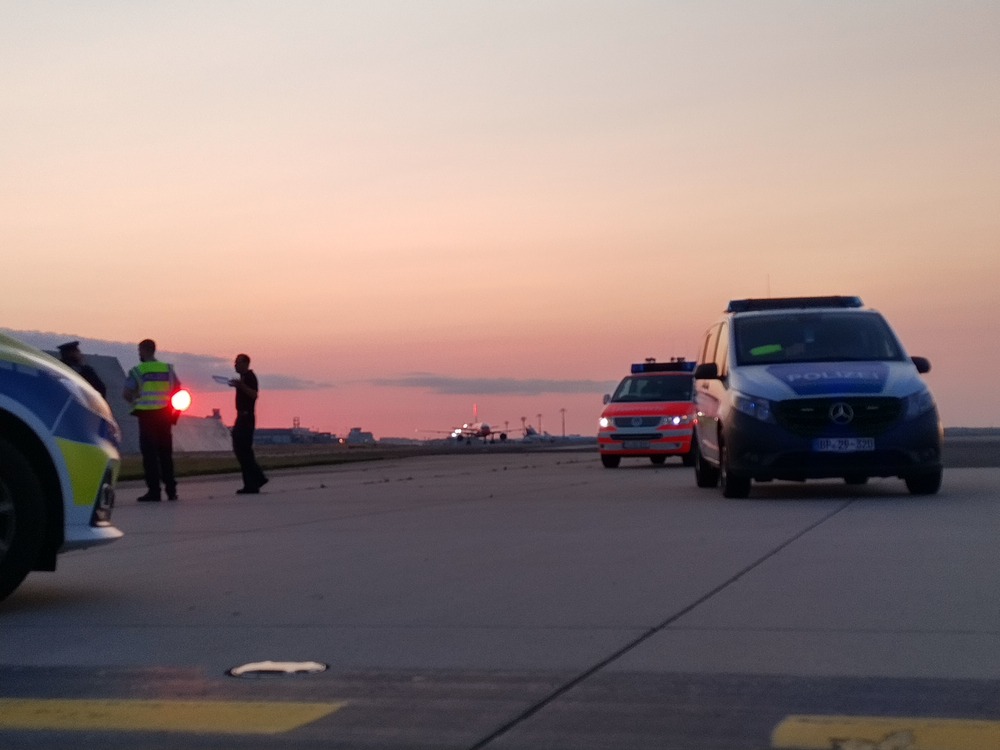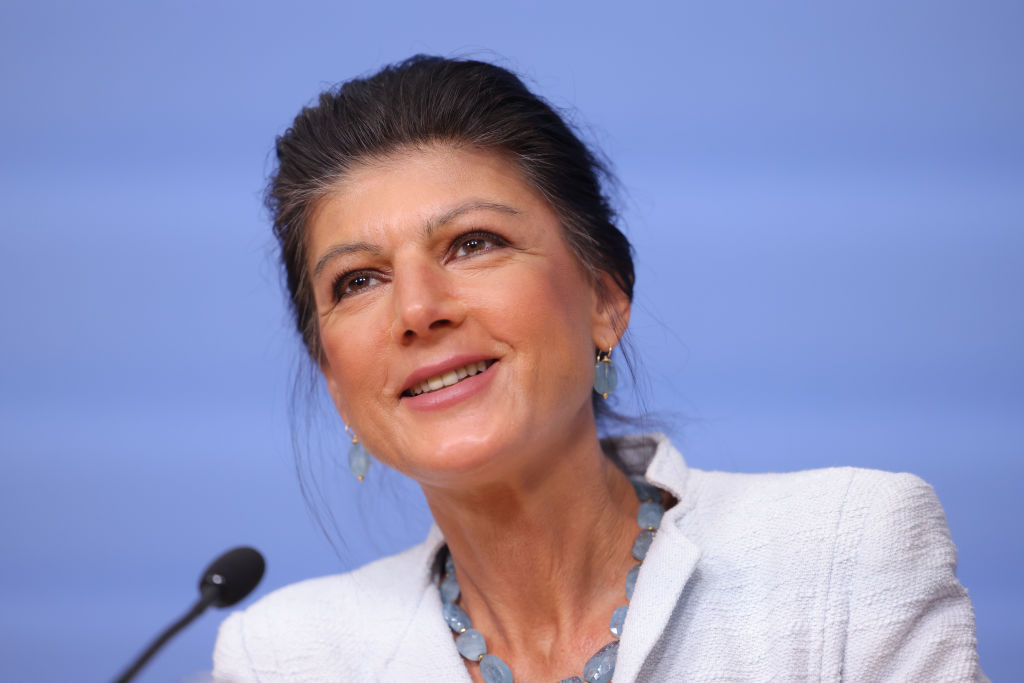A group of 40 German Christian Democratic Union (CDU) politicians have expressed opposition to co-operating with the hard-left populist party of Sahra Wagenknecht (BSW) over what they see as its Russian-friendly stance.
After the State elections in Thuringia and Saxony on September 1, where populist parties scored well, only a few coalitions now appear possible. Because the hard-right Alternative for Germany Party (AfD) is regarded as beyond the pale, the Christian Democrats appear to be limited to working with the BSW.
Its President Merz Friedrich has given the green light to a coalition with BSW. He is supported by MEP Peter Liese who said in the Brussels Signal studios on September 3 that a coalition could “moderate” Wagenknecht and her colleagues.
Despite that, a significant element within the CDU is trying to prevent any such coalition with the hard-left.
North Rhine-Westphalian Christian Democrat member Frank Sarfeld told German daily Tagesspiegel: “Wagenknecht contradicts everything that the [Christian Democrat] Union parties have stood for since the founding of the Federal Republic of Germany: Clear ties to the West, a united Europe and membership in NATO as the largest peace project in history.
“Like the AfD, the BSW is also turning to authoritarian systems,” he said. “There must be no co-operation with such groups.”
Sarfeld represents the 40 CDU members, including prominent names such as foreign policy expert Roderich Kiesewetter, MEP Dennis Radtke who is also the designated chairman of the CDA workers’ wing, and federal board member Monica Wüllner.
Radtke told Tagesspiegel: “Every political actor knows what the BSW stands for – namely, against fundamental Christian Democratic principles such as the Western alliance, liberal democracy, and European integration. The only real mystery lies in the lack of transparency regarding its financial backers.
“The CDU is heading for an abyss if we allow ourselves to be harnessed to the cart of Sahra Wagenknecht.” He added he feared that the “AfD and BSW want to destroy the CDU because we are the last bulwark of the political centre”.
Kiesewetter, who is also deputy chairman of the intelligence control committee in the Bundestag, was more explicit: “The BSW acts as an extended arm of the Kremlin.”
The BSW, he said, wanted to “undermine the democratic centre, including the Union as a people’s party, and undermine our fundamental values, which is why co-operation should be ruled out.”
Radtke also criticised how his party dealt with The Greens party ahead of the State elections. Despite their members’ failed policies, they are not the main opponent, he stressed.
“Who is supposed to understand that we want to make a pact with Stalinists, but rule out coalitions with a democratic competitor who also largely shares our foreign policy convictions?
“[We are] again at a crossroads in the fight for our democracy and a free Europe. That must be clear to everyone in their behaviour in the coming months,” he concluded.
The 40-strong group has demanded a so-called “incompatibility resolution” (inkompatibilitätsbeschluss) to be put forward at the next federal party conference, which will take place in June 2025.
The incompatibility resolution refers to an internal policy that prohibits members from belonging to certain other political organisations or groups that are considered not to be fully aligned with the party’s values and objectives.
It aims to maintain the CDU’s ideological consistency and to distance itself from extremist or fringe groups that could damage its reputation or cause internal conflicts.
Currently, the party refuses to work with the hard-right AfD and the hard-left Die Linke (The Left) party.
Earlier, Saxony’s Prime Minister Michael Kretschmer (CDU) said he wanted to form a “stable government” and would need the BSW to form a majority in his State.
Thuringian CDU top candidate Mario Voigt also said he was open to working with BSW. Voight also said on September 4 he opposed an AfD State parliament president.
“People who are observed by the Office for the Protection of the Constitution can’t do that, common sense prevents that,” Voigt said.
In Saxony and Thuringia, the CDU and BSW are already negotiating a joint coalition government, together with the much-reduced Socialist Party.
Liese described such a coalition as “an opportunity, so that discussions with these people can lead to a more moderate position”.





